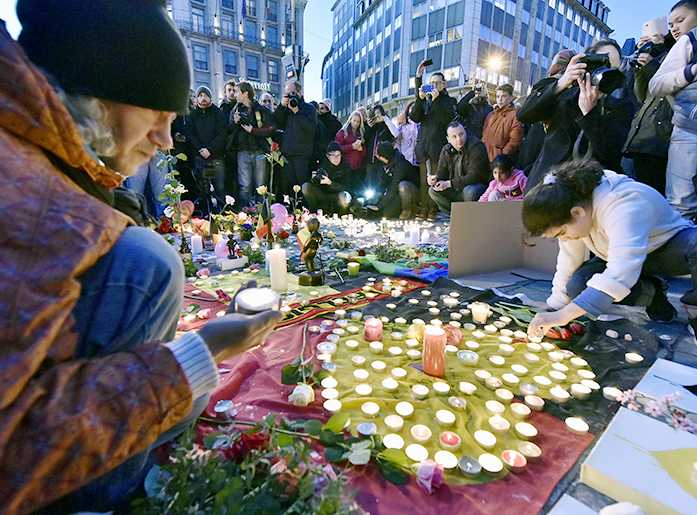Brussels quaked with three explosions early Tuesday morning. Two blasts occurred in the main terminal of Zaventem airport, and the third occurred in the Maelbeek metro station. The explosions left at least 30 dead and more than 100 wounded. A third bomb in the Zaventem airport was found and detonated by police.
ISIS has claimed responsibility for the attacks. Three attackers have been identified by cameras in the airport, and a warrant has been issued for one — the two others are suspected to have died in the explosions.
Three days of national mourning have been declared in Belgium after the attack in the capital, home to more than 1 million people in the metro area.
The attack was not entirely unexpected. Belgium has been on high alert following the arrest of Salah Abdeslam in Brussels. Abdeslam, a Belgian-born French native, was wanted for alleged involvement in the terror attacks that shook Paris in November 2015. Belgium is home to the European Council and EU Commission headquarters, as well as a robust terrorist network. The attack in Maelbeek metro station was just blocks away from the U.N. regional office and EU headquarters. As French President François Hollande put it, “The terrorists have struck Belgium, but it is Europe that was targeted.”
From the Kremlin to the White House, global leaders were quick to condemn the attacks and offer support in the efforts to find those responsible. The UK has raised its terror-threat level and urges that only the most necessary travel be made to Brussels. Though conservative rhetoric in Europe and the United States may want to lay blame on refugees, there is no solid evidence to support a connection between Syrian refugees and the recent terror attacks in France and Belgium. ISIS, which has claimed responsibility for the attack, would benefit from a pool of perpetually homeless and hungry refugees in Syria and Iraq, because it can offer food, work, and protection.
The recent attacks in Western European capital cities seem to be offering a point of unification amid economic and political tension in the EU. Attacks in London, Madrid, Paris, and Brussels are places of common loss and grief. Belgian President Charles Michel was quick with a radio message to his people and the world.
“It is a common fight, it is a fight without borders,” Michel said. “Belgium is very mobilized to succeed in the face of this tragic event, which has struck us in our hearts.”
It is important to remember that these horrific attacks are not necessarily signs of terrorist strength but possibly desperation. As ISIS territory shrinks and efforts to stamp out terrorist cells in Europe intensify, the likelihood of insurgent strikes in Europe and the United States will increase. The most vicious beast is the one cornered, fearing its ultimate demise.
That said, the sophistication of these attacks, including the techniques used in creating the bombs containing nails and other shrapnel and the terrorists’ ability to remain undetected in their communication indicate that this undercover network of ISIS operatives in Europe is certainly no JV team.
The Daily Iowan Editorial Board sends its thoughts to Brussels, where many have lost their lives in senseless violence. The EU must stay calm, lucid, and united in its efforts to expunge jihadist cells and those responsible for the attacks. Islamophobic rhetoric from either side of the Atlantic is neither conducive to the defeat of ISIS nor the long-term stability of the Middle East and the global community.



